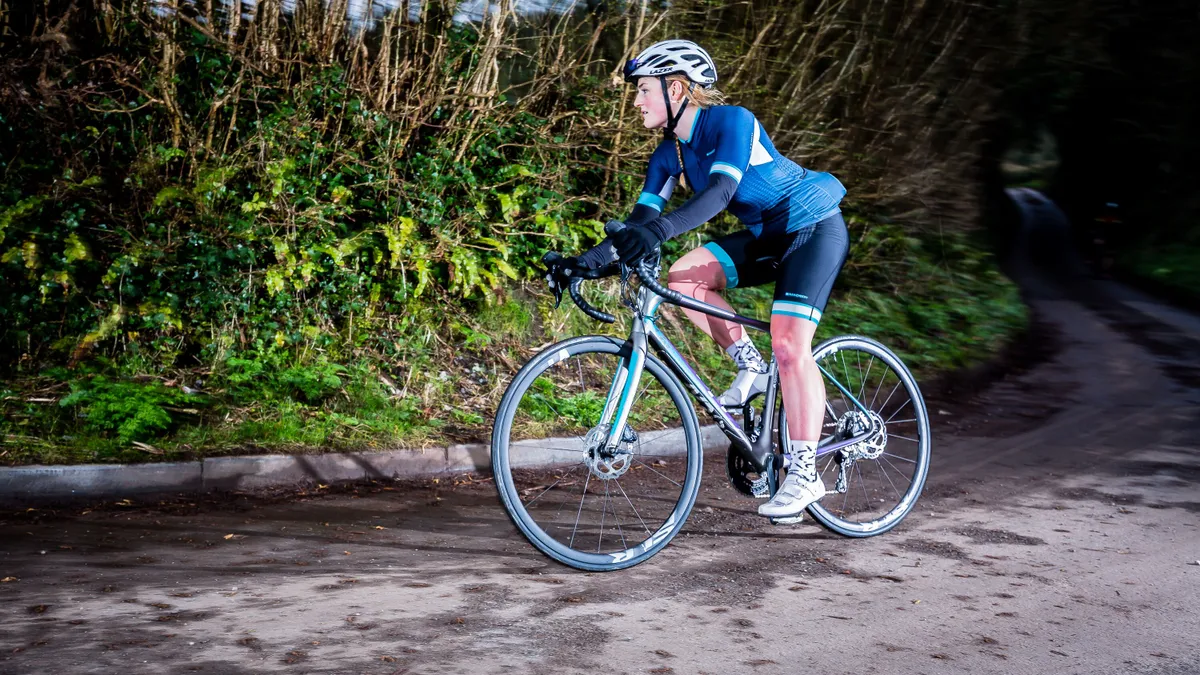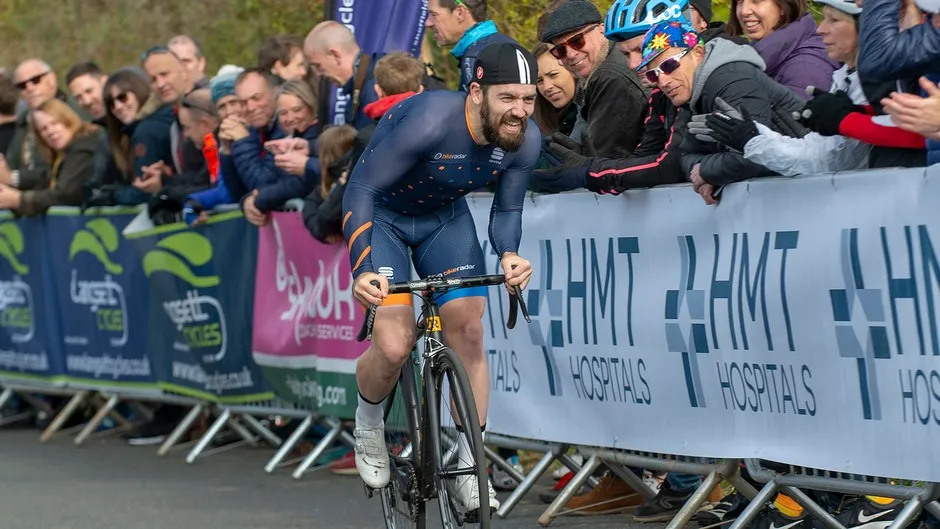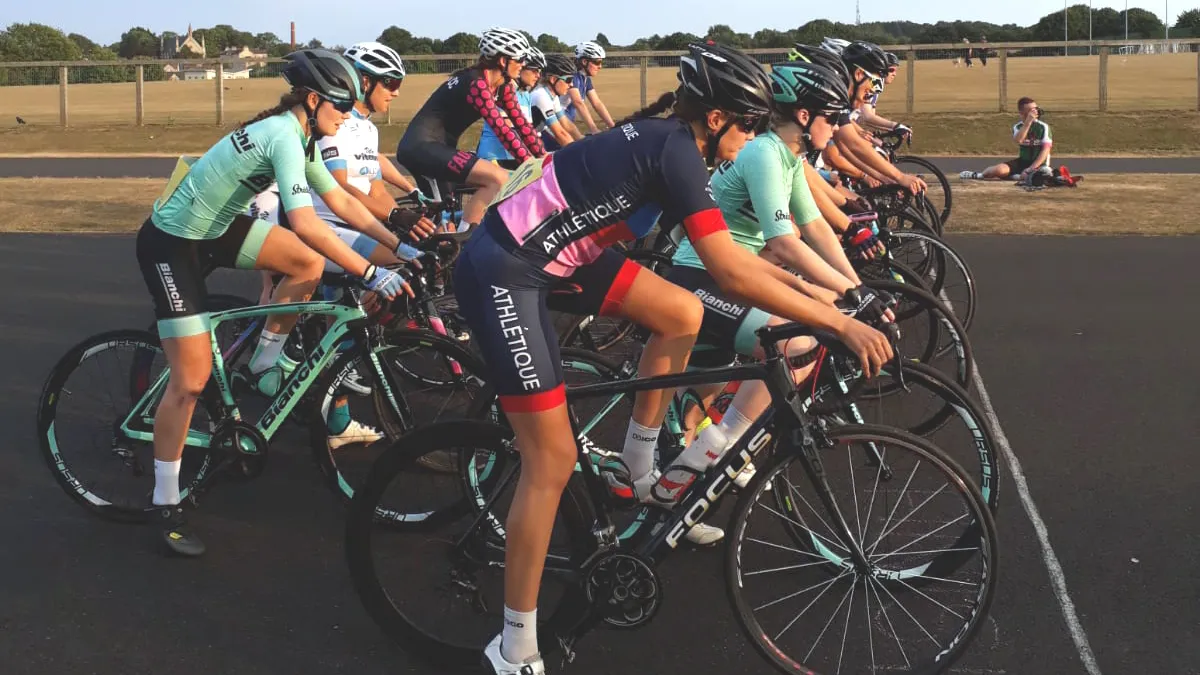You've spent months in the off-season training hard. Your legs and body are feeling good. Those months of effort — hours spent on wet road rides and endless turbo sessions — has been time and investment spent to get ready so you can perform your best in race season. But how many of us have spent as much time preparing our heads? Are our brains ready for racing?
Just 30 minutes to learn these three mental skills will help us do full justice to our training
Some of us have a habit of leaving mental preparation off our to do list, opting instead for winging it and hoping for a big dose of good luck. Unfortunately, using this as a strategy leaves an awful lot to chance and risks wasting all the physical efforts we have made.
Instead, taking just 30 minutes to learn these three mental skills will help us do full justice to our training and boost our performance this season.
- 7 essential road cycling skills
- Get your nutrition right with our guide to pre-ride, during and post-ride fuelling
- The ultimate sportive nutrition guide
1. Chunking

Nope, it's not a typo. I'm not talking about chucking (either your bike off the side of a mountain in frustration or throwing up with the efforts) but rather chunking.
Specifically, 'chunking' down your races into much smaller manageable pieces so they feel less intimidating and not so pressured.
We need to check in with our bodies and to do so regularly
Each time we tick off another section we get a shot of dopamine (a brain chemical linked to reward) giving us lots of mini-surges of pleasure. The more we achieve, the more often we get our shot, so we feel good and this in turn boosts our confidence.
How to chunk
- A few days before your race look at the course and find some natural sections. Lapped courses obviously work well but if it's one long loop or a point to point you can break down the route into specific distances or use natural landmarks to split it up.
- For each chunk develop a goal to focus on. It could be about the course, your effort level or your technique.
- Write these goals down, read through regularly and stick them on your bike frame if you can.
2. Checking your body

In some endurance sports, mentally checking out of the race to distract yourself from the discomfort and pressure is a valuable strategy.
But when you are on the bike, distraction like this could see you flying into a bush, or worse. So instead of checking out, we need to check in with our bodies and to do so regularly. It keeps our technique strong and our focus maintained, however tired we get.
If we regularly monitor our body and adjust our pace, strategy or movement we can better master our environment, respond quicker to competitors and improve our technique. It helps us become hyper aware of our bodily actions and functions; heart rate, muscle tension, breathing patterns and so on, and it ensures we keep on top of all of these to pace well and push when we can.
It doesn’t just help us perform better; studies have found that athletes using this technique find more pleasure in their sport.
How to check
- Pick regular points in the race where you will focus on your body and your position, effort level and technique.
- Start with your feet and work up through the body, considering each key body part to ensure it is where it should be and is working as efficiently as possible.
- If it isn’t then shift your position.
- Regularly doing this in training makes it easier to do under the pressure of competition.
3. Change the chat
We all have internal head chatter: the thousands and thousands of thoughts which run through our heads all day, every day. These thoughts have a powerful influence on how we behave, our levels of motivation and the confidence we exude (or lose).
We can’t force our chatter into being relentlessly positive but we can work to make it helpful
When the chatter is negative it can turn even an okay race into a disaster – self-sabotaging our efforts and annihilating our confidence.
We can’t force our chatter into being relentlessly positive but we can work to make it helpful. Researchers have found helpful self-talk can increase the time it takes us to reach exhaustion, improve our attention, confidence and control and helps us see races as challenges rather than threats. These all improve our performance on the bike.

To make our head chatter more helpful we can visualise it coming from a coach giving us instructions while we race, helping us to maintain great technique, use better tactics or keep us focused on trying to do well rather than unhelpfully concentrating on not screwing up.
How to change the chat
- Think about the times in races when you struggle the most.
- Consider what you would do in these situations in an ideal mental state.
- Turn these strategies into short instructions; consider instructions around concentration, problem solving, accuracy, body position or tactics.
- The instruction needs to be positive (something to do rather than something to avoid)
- Boil the instruction down into a short sentence that you can remember and repeat rhythmically.
Performing under the pressure of a race is not supposed to be easy but it can be far more manageable if we use the 'chunk, check and chat' technique to help build focus and confidence. This will in turn boost our performance.
